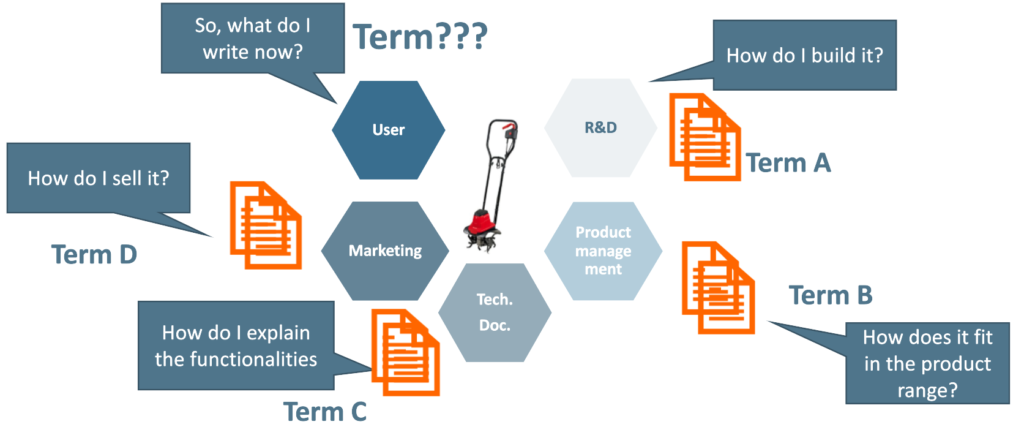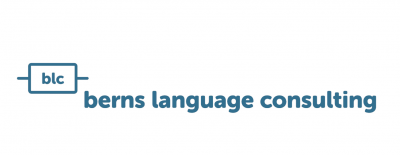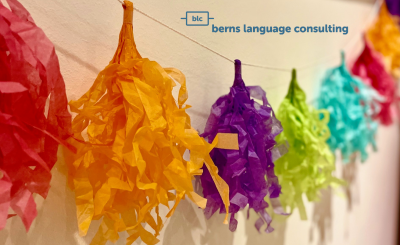A very exciting question, which I have actually heard many times from a variety of people and whose answer is not easy at all. After all, I can’t say “I’m a doctor” or “I’m an engineer” or many other job titles where the person I’m talking to knows directly what to imagine. No. I say “I am a terminologist and language process consultant” and that’s where the fun begins…
Terminologist... what is terminology?
This question is usually the first answer I get including confusion in the eyes and a frowning forehead. In my early days, shortly after my Master’s degree, I always tried to shout out the academic explanations I was used to, which usually only caused more confusion.
Now, I do it differently and it sounds more like this: My job as a terminologist is primarily about helping our customers define their corporate terminology. In other words, to ensure in joint coordination that all departments speak the same language, both internally and externally. As well as knowing which terms are preferred and which are deprecated – to develop and disseminate a corporate language.

This ranges from the development of an initial consolidated terminology database including metadata, to support practical terminology work in day-to-day business or the creation of terminology creation guidelines to define generic and company-specific criteria for terminology worthiness, to support the introduction of comprehensive processes and systems for terminology management.
And that's where language process consulting comes into play?
Exactly! At blc, we are all language process consultants, but we all have our own specialties and areas of expertise – and we also need to be experts in order to provide our customers with the best possible advice. My expertise lies – who would have guessed – in terminology.
For example, if a customer wants to introduce a terminology management system, I help them define and prioritize requirements in order to determine which system is best fitted to them and any existing system landscape as part of a system evaluation. This can also be followed by admin or user training , which we offer to familiarize the customer to the new system and to enable them to use the system independently during ongoing business. Later on, system assistance or support are not excluded and also things that we do with pleasure.
Okay exciting... but where exactly is the (language) process?
Good question! The language process is everywhere and our daily business. When I run customer projects in terminology, I always have to keep an eye on the rest of the process at the customer’s site:
Terminology is important not only for the quality of the text in the source language, but also for the quality of the translation, for example. If the terminology is consistent and aligned in the source language, it can also be consistent and harmonized in the target languages. This saves time, nerves and money.
How this can look in terms of process, i.e. how customers can ensure that the terminology in the source language is correct, how it is coordinated and by whom, as well as how and who defines the target language terminology based on the source language, or how the defined terminology can ultimately be used in concept maps and ontologies is what the consultancy is there for.
I help with the development and creation of dedicated terminology processes, both in theory and in practice in the selected system, perform configurations and make adjustments according to the customer’s wishes so that nothing stands in the way of a GoLive.
Conclusion
Sometimes the answer to the question of what I’m doing at blc is like a magic cube. Many different facets and many different tasks with even more different solutions. No project is the same and each customer has its own special features and challenges. We can also talk about your challenges and needs – contact us!
That’s the exciting thing I think: No day is like the other.






